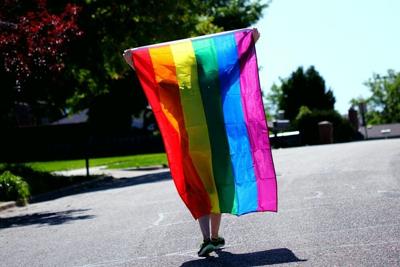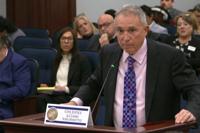
The 11th Circuit opinion centered around the free-speech rights of transgender teachers.
A Florida law that bars public school teachers from using pronouns that do not correspond to their sex at birth does not violate teachers’ free-speech rights under the First Amendment, a federal appeals court said.
In a 2-1 decision, the 11th Circuit Court of Appeals concluded on July 2 that the 2023 state law prohibiting public K-12 teachers from providing a student with their preferred pronouns if the titles do not correspond to their sex does not violate First Amendment rights. That’s because teacher Katie Wood, in this instance, is speaking as a government employee, not a private citizen, the appeals judges said
Citing judicial precedent, the court said that in resolving incidents involving this “private-citizen / government-employee tension,” the teacher must first prove she was speaking as a citizen, rather than in her role as a government employee, and was discussing a matter of public, not private, concern. Then she must show that her interest in making the statements in question have to outweigh “the state’s interests in promoting the efficient delivery of public services.”
“Wood’s case, we conclude, founders on the first prong of step one,” the appeals court said. “She cannot show, with respect to the expression at issue here, that she was speaking as a private citizen rather than a government employee.”
The decision doesn’t explain the connection between pronoun restrictions and “efficient delivery of public services.”
The Southern Poverty Law Center (SPLC), which represented Wood, has yet to say if it would appeal the 11th Circuit decision.
"We respectfully disagree with the court’s decision regarding our client’s First Amendment rights, and are weighing our options,” SPLC spokeswoman Vanessa Harmoush told the Florida Record in an email. “Regardless, SPLC will continue to fight for our clients’ right to live and work as their authentic selves. We await the district court’s decision on our clients’ employment discrimination and equal protection claims, among others, which remain to be decided on summary judgment.”
Laws such as the one passed in Florida in 2023 are pushing LGBTQ+ people out of the teaching profession and out of public life, according to the SPLC. The Florida law subjects violators to loss of their jobs and teaching certification, the center said in its description of the lawsuit filed on behalf of Wood and others.
Some of the defendants in the case, including the Hillsborough County School Board and Florida Department of Education, did not respond to requests for comment.
Wood’s original lawsuit asked a federal court in the Northern District of Florida to enjoin enforcement of a section of the statute on the grounds that it violated her First Amendment rights. A district court judge agreed with Wood’s position when it came to the use of gendered identifiers such as “she / her,” but the appeals court vacated the lower court’s ruling and remanded the case.
“The speech at issue here – in which Wood verbally provided her preferred honorific and pronouns, wrote them on her whiteboard and syllabi, and wore a “she/her” pin – fits that description (of a teacher carrying out official duties) precisely,” the 11th Circuit opinion states.
Case law allows government regulation of a teacher’s curricular speech, according to the court.
“But the inverse – that the First Amendment forbids regulation of a teacher’s in-class noncurricular speech – doesn’t follow,” the opinion says.






